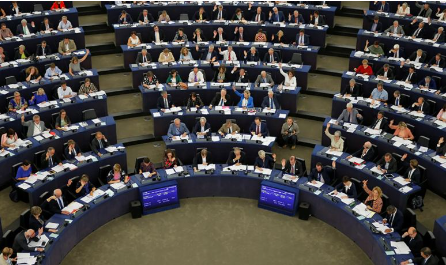The European Parliament has adopted the 2023–2024 progress report on Albania, renewing its call for institutional consolidation, rule of law reforms, and the depoliticization of national disputes that risk destabilizing the country’s European trajectory. With 57 votes in favour, 11 against, and 6 abstentions, the report—drafted by MEP Andreas Schieder—reflects both cautious optimism and deep concern.
The document commends Albania’s formal alignment with EU foreign policy and its continued cooperation on migration, regional security, and economic harmonization.
However, it also issues stern warnings regarding persistent democratic deficiencies. Among its top priorities:
- Strengthening the rule of law, particularly in judicial independence;
- Combating corruption and enhancing transparency in public procurement;
- Ensuring media freedom and the safety of journalists;
- Reducing political polarization that threatens institutional legitimacy.
In his remarks, Schieder admitted, “There are many things that are not perfect,” signalling that progress remains fragile.
From Brussels, opposition leader Sali Berisha characterized the report as an unequivocal indictment of Prime Minister Edi Rama’s government. He emphasized its implicit condemnation of the Strategic Investments Law, which he claims facilitates clientelist arrangements and erodes public trust. “This report stamps Rama’s regime as one that undermines fundamental rights—freedom of expression, access to information, and property rights,” Berisha said.
In contrast, government officials have interpreted the report as a recognition of Albania’s ongoing commitment to the EU path, downplaying the criticisms as constructive notes rather than disqualifying flaws. MEP Antonio Maria Tarquinio issued a striking rebuke to both sides, stating, “Do not bring your national problems to Europe!”, a remark widely understood as a call for domestic responsibility over exported dysfunction.
Analytical Timeline
- 11 May 2025: Albanian elections stir renewed domestic tension, with disputes over legitimacy spilling into international forums.
- 22 May 2025: EP Foreign Affairs Committee meets to discuss Albania’s progress,
calling for institutional maturity post-election. - 3 June 2025: The European Parliament formally adopts the report, highlighting both advancements and persistent challenges.
While the opening of negotiations on the chapter group “Competitiveness and Inclusive Growth” marks a step forward, the EU’s emphasis on domestic reform—not merely legislative alignment—signals that Albania’s path to full membership remains conditional. Institutional resilience and political cooperation are now seen as as crucial as technical benchmarks.
In contrast to other Balkan aspirants, such as North Macedonia—whose reforms are frequently delayed by bilateral disputes—Albania’s challenge appears more internal: the ability to manage power peacefully, ensure judicial integrity, and engage civil society without coercion.
The latest EP report underscores a familiar dilemma for Albania: visible steps toward EU integration are undermined by domestic instability and contested democratic norms. Whether the country’s political elite can transcend internal rivalries and embrace a shared European vision may determine not only the pace of accession—but the credibility of its democratic project.
Written by our correspondent A.T.



